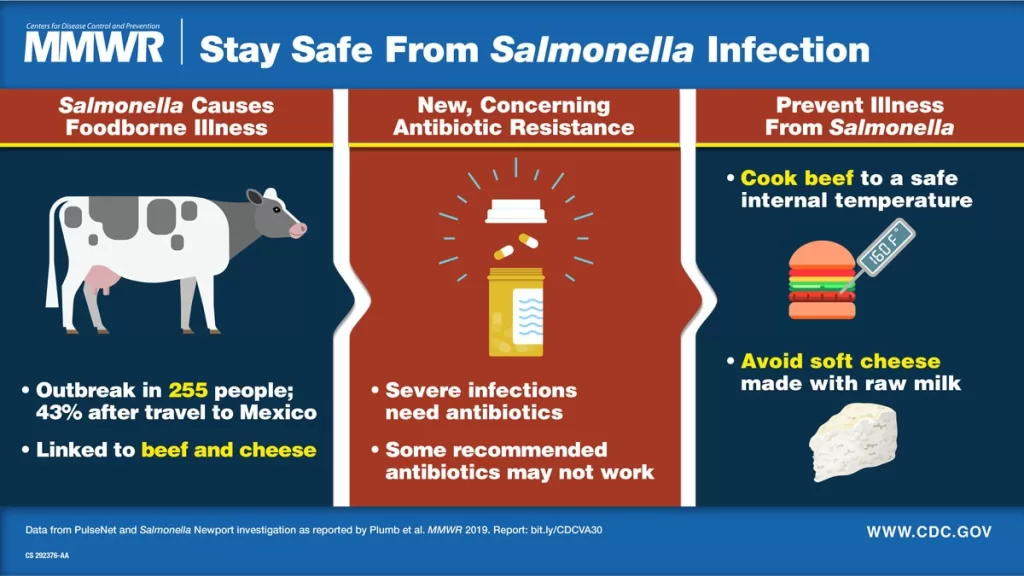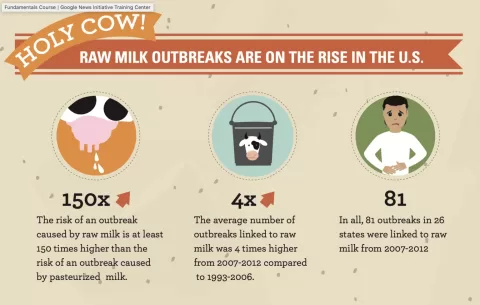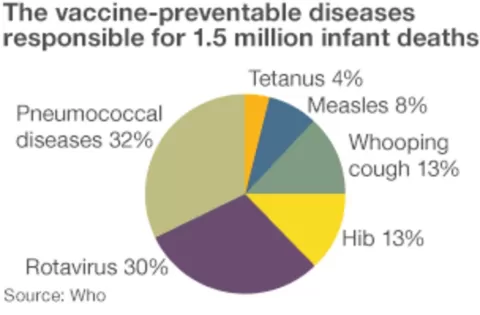The recent Salmonella outbreak highlights serious concerns over food safety, prompting investigations by the CDC and FDA. With 11 individuals sickened across 10 states due to a strain linked to frozen sprouted beans, health authorities are on high alert. The CDC investigation has revealed that these beans, sold under the Deep-brand, may be contaminated, leading to hospitalizations and increased monitoring. Additionally, a separate Salmonella Oranienburg outbreak connected to pistachio cream has emerged, raising further alarms as the agency issues food safety alerts. As these developments unfold, awareness of Salmonella symptoms and proper handling measures becomes crucial for consumer safety.
The current situation involving a Salmonella infection outbreak underscores the challenges faced by health regulators and consumers alike. Known colloquially as foodborne illness cases, these reports involve various contaminated products, particularly frozen sprouted beans and pistachio cream. Authorities, including the CDC and FDA, are actively conducting a thorough investigation to trace the source and manage the implications of these health threats. As these incidents unfold, it’s vital for consumers to understand the risks associated with certain food products and stay informed about current food safety alerts. Accurate knowledge of symptoms related to these outbreaks can empower individuals to seek timely medical advice.
Understanding the Current Salmonella Outbreak
The recent Salmonella outbreak has raised concerns across the United States. The CDC has identified 11 individuals affected by a specific strain of Salmonella (Anatum) linked to frozen sprouted beans. This investigation emphasizes the importance of monitoring food products that can harbor harmful bacteria, particularly those that are minimally processed. Consumers need to be aware of this outbreak, especially those who regularly consume frozen sprouted beans, as they are often marketed as healthy food options, yet they can pose significant health risks.
Furthermore, the CDC and FDA’s findings highlight the need for heightened vigilance in food safety. The number of patients reporting Salmonella symptoms such as stomach cramps, diarrhea, and fever should prompt the public to stay informed about potential food recalls. Consumers should always stay updated with food safety alerts issued by health authorities to prevent further illnesses. The linkage of illnesses to specific brands, like the Deep-brand beans, provides critical information to aid public health interventions.
The Involvement of the FDA in Food Safety Investigations
The Food and Drug Administration (FDA) plays a crucial role in investigating foodborne illness outbreaks, such as the current Salmonella outbreaks linked to frozen sprouted beans and pistachio cream. By conducting routine sampling and testing, the FDA identifies contamination and helps trace the sources of outbreaks. In this case, their early detection of Salmonella in product samples led to timely alerts and recalls, minimizing the risk to consumers.
Moreover, the FDA’s collaboration with entities like the CDC and state health departments demonstrates the coordinated effort required to address food safety concerns. Their ongoing investigations incorporate laboratory testing and whole-genome sequencing (WGS) to understand the genetic relationships between different Salmonella strains. This scientific approach not only helps manage the current outbreak but also informs future preventive measures to safeguard public health.
Impact of the Pistachio Cream Recall on Consumers
The recall of Emek brand Pistachio Cream due to potential Salmonella contamination highlights the direct impact that foodborne illness outbreaks can have on consumers. The fact that three illnesses in two states have been linked to this product underlines the importance of consumer awareness. When products like pistachio cream are associated with health risks, it prompts a swift response from retailers and regulatory agencies to ensure consumer safety.
Additionally, such recalls impact consumer confidence in food products available in stores. Shoppers may become hesitant to purchase items like pistachio cream, fearing similar health risks. It’s essential for consumers to remain informed about recalls and to understand how to recognize symptoms of Salmonella infection, as early detection can lead to better outcomes. Regular updates from health authorities, along with responsible food handling practices, can mitigate these risks.
Salmonella Symptoms: Recognizing the Warning Signs
Recognizing Salmonella symptoms is vital for timely intervention and treatment. Common signs of infection include diarrhea, fever, abdominal cramps, and nausea that typically manifest between six hours to six days after exposure. Understanding these symptoms can help individuals seek medical attention promptly, especially if their condition worsens.
Awareness of these symptoms is particularly important in the context of current outbreaks. As seen in the investigations related to frozen sprouted beans and pistachio cream, many affected individuals may initially disregard mild symptoms. However, recognizing the potential seriousness of these signs can help individuals connect the dots between their food choices and their health, ultimately contributing to faster responses to foodborne illnesses.
The Role of Whole-Genome Sequencing in Outbreak Investigations
Whole-genome sequencing (WGS) has emerged as a revolutionary tool in the identification and investigation of foodborne illness outbreaks. By analyzing the genetic material of pathogens, public health entities like the CDC can effectively track the sources of contamination and understand how different strains of bacteria relate to one another. This method has proven invaluable in discerning the genetic matches between the Salmonella strains found in contaminated frozen sprouted beans and affected patients.
Furthermore, WGS allows investigators to map out how far and how quickly a contamination has spread. With real-time data, health officials are better equipped to issue timely recalls and alerts, minimizing the risk of additional illnesses. The role of WGS underscores a significant advancement in food safety protocols, enabling quicker responses to outbreaks and fostering a proactive approach to consumer protection.
Food Safety Alerts: Staying Informed
Food safety alerts are crucial in keeping consumers informed about potential health risks associated with certain products. The CDC and FDA issue these alerts based on investigations and laboratory findings, allowing the public to take necessary precautions. For instance, the ongoing investigations into frozen sprouted beans and pistachio cream have prompted immediate actions to protect consumers from potential Salmonella contamination.
Consumers should actively seek out these safety alerts to stay ahead of foodborne illness outbreaks. Ignoring such warnings can lead to serious health consequences, especially for vulnerable populations like young children, the elderly, and immunocompromised individuals. Awareness of recalls and safety information can empower consumers to make informed choices about the foods they purchase and consume.
Understanding Frozen Sprouted Beans and Their Safety
Frozen sprouted beans, often marketed for their nutritional benefits, have come under scrutiny due to their association with recent Salmonella outbreaks. While they are considered a healthy addition to meals, the risks of contamination highlight the importance of proper handling and cooking. Consumers should be aware that not all frozen foods are safe without proper preparation to eliminate potential pathogens.
Additionally, ensuring the quality of sprouted beans before consumption is critical. Purchasing from reputable sources and adhering to food safety guidelines can prevent illnesses. As the CDC and FDA continue to investigate the recent outbreaks, it serves as a reminder of the potential hidden dangers within our food supply and the need for vigilance.
The Importance of Reporting Foodborne Illness
Reporting foodborne illnesses plays a significant role in outbreak management and prevention. Individuals who suspect they have contracted Salmonella or any other foodborne illness should report their symptoms to health authorities as soon as possible. This can help trace the outbreak source and prevent further infections by providing vital data to public health officials.
Moreover, increased reporting allows for better tracking of illness trends linked to specific foods. The collective information from the public can assist agencies like the CDC and FDA in making informed decisions regarding recalls and safety protocols. Engaging the community in reporting can lead to improved food safety practices and more robust responses to outbreaks.
Preventing Future Salmonella Outbreaks: Best Practices
Preventing future Salmonella outbreaks requires a collective effort from consumers, retailers, and regulatory agencies. Individuals can take necessary steps such as cooking foods to safe temperatures, avoiding cross-contamination, and practicing good kitchen hygiene. Understanding where food comes from and choosing products that have been tested can significantly reduce the risk of contamination.
On a broader level, food manufacturers must adhere to strict safety protocols and conduct regular testing to ensure their products remain free of harmful pathogens. Regulatory bodies should continue to enhance their monitoring systems, combining technology like whole-genome sequencing with traditional inspection methods to identify and address food safety issues proactively. Only through a unified approach can we hope to minimize the occurrence of Salmonella and other foodborne illnesses.
Frequently Asked Questions
What is the current Salmonella outbreak related to frozen sprouted beans?
The current Salmonella outbreak linked to frozen sprouted beans involves a strain known as Salmonella Anatum. It has caused illnesses in 11 individuals across 10 states. The CDC has identified Deep-brand frozen sprouted moth beans and moong beans as potential sources, and a recall has been issued by Chetak LLC Group.
What symptoms should people be aware of during the Salmonella outbreak investigations?
Common Salmonella symptoms include diarrhea, fever, abdominal cramps, and vomiting. If you experience these symptoms, especially after consuming products associated with the Salmonella outbreak, seek medical attention.
How can I stay informed about the CDC investigation into the Salmonella outbreak?
To stay updated on the CDC investigation into the Salmonella outbreak, regularly check the CDC’s official website and subscribe to their food safety alerts. These updates provide information about ongoing investigations, recalls, and safety recommendations.
What actions have been taken regarding the pistachio cream recall linked to a Salmonella outbreak?
A recall has been issued for Emek brand Pistachio Cream and Emek Spread Pistachio Cacao Cream after an investigation linked these products to a Salmonella Oranienburg outbreak. The Minnesota Department of Agriculture detected Salmonella in these products, prompting the recall.
What should I do if I suspect I’ve consumed contaminated frozen sprouted beans?
If you suspect you have consumed contaminated frozen sprouted beans associated with the Salmonella outbreak, monitor for symptoms and consult a healthcare provider. You may also report your illness to local health authorities to aid in the ongoing investigation.
What states are affected by the current Salmonella outbreak investigations?
The Salmonella outbreak related to frozen sprouted beans has affected individuals in Connecticut, Florida, Illinois, Massachusetts, Minnesota, New Jersey, Pennsylvania, Tennessee, Virginia, and Washington. The CDC and FDA are actively investigating these cases.
Are there any reported fatalities in the ongoing Salmonella outbreak investigations?
As of now, there have been no reported fatalities related to the Salmonella outbreak investigations involving frozen sprouted beans or pistachio cream. However, several individuals have been hospitalized due to their illnesses.
What is the role of the FDA in the Salmonella outbreak investigations?
The FDA is actively involved in the Salmonella outbreak investigations by conducting routine sampling and testing of food products. They also provide updates on recalls and collaborate with the CDC to trace sources of contamination and ensure food safety.
How can consumers protect themselves from Salmonella during outbreaks?
Consumers can protect themselves from Salmonella during outbreaks by avoiding consumption of recalled products, practicing proper food handling and cooking techniques, and staying informed about food safety alerts from health authorities.
What should I know about the epidemiological evidence related to the Salmonella outbreak?
Epidemiological evidence linking the Salmonella outbreak to specific products, such as frozen sprouted beans and pistachio cream, has been gathered through interviews and laboratory testing. This evidence helps health officials trace the source of contamination and implement necessary recalls.
| Key Point | Details |
|---|---|
| CDC & FDA Involvement | Investigating outbreaks related to frozen sprouted beans and pistachio cream. |
| Salmonella Strain | The strain involved in frozen sprouted beans is Salmonella Anatum, while the pistachio outbreak is linked to Salmonella Oranienburg. |
| Number of Illnesses | 11 illnesses reported across 10 states for sprouted beans; 3 illnesses in 2 states for pistachio cream. |
| Hospitalizations | 4 hospitalizations for sprouted beans; 1 hospitalization for pistachio cream. |
| States Affected by Beans | Connecticut, Florida, Illinois, Massachusetts, Minnesota, New Jersey, Pennsylvania, Tennessee, Virginia, Washington. |
| States Affected by Cream | Minnesota and New Jersey. |
| Product Recalls | Chetak LLC Group recalled frozen sprouted beans; World Market recalled pistachio cream products. |
Summary
The recent Salmonella outbreak has prompted the CDC and FDA to investigate significant health concerns linked to food products. As noted, multiple individuals have reported illnesses tied to frozen sprouted beans and pistachio cream. This outbreak highlights the ongoing risk of foodborne pathogens in consumer products, emphasizing the need for diligence in food safety practices. Consumers are urged to stay informed about recalls and potential risks associated with foodborne illnesses.
The content provided on this blog (e.g., symptom descriptions, health tips, or general advice) is for informational purposes only and is not a substitute for professional medical advice, diagnosis, or treatment. Always seek the guidance of your physician or other qualified healthcare provider with any questions you may have regarding a medical condition. Never disregard professional medical advice or delay seeking it because of something you have read on this website. If you believe you may have a medical emergency, call your doctor or emergency services immediately. Reliance on any information provided by this blog is solely at your own risk.








